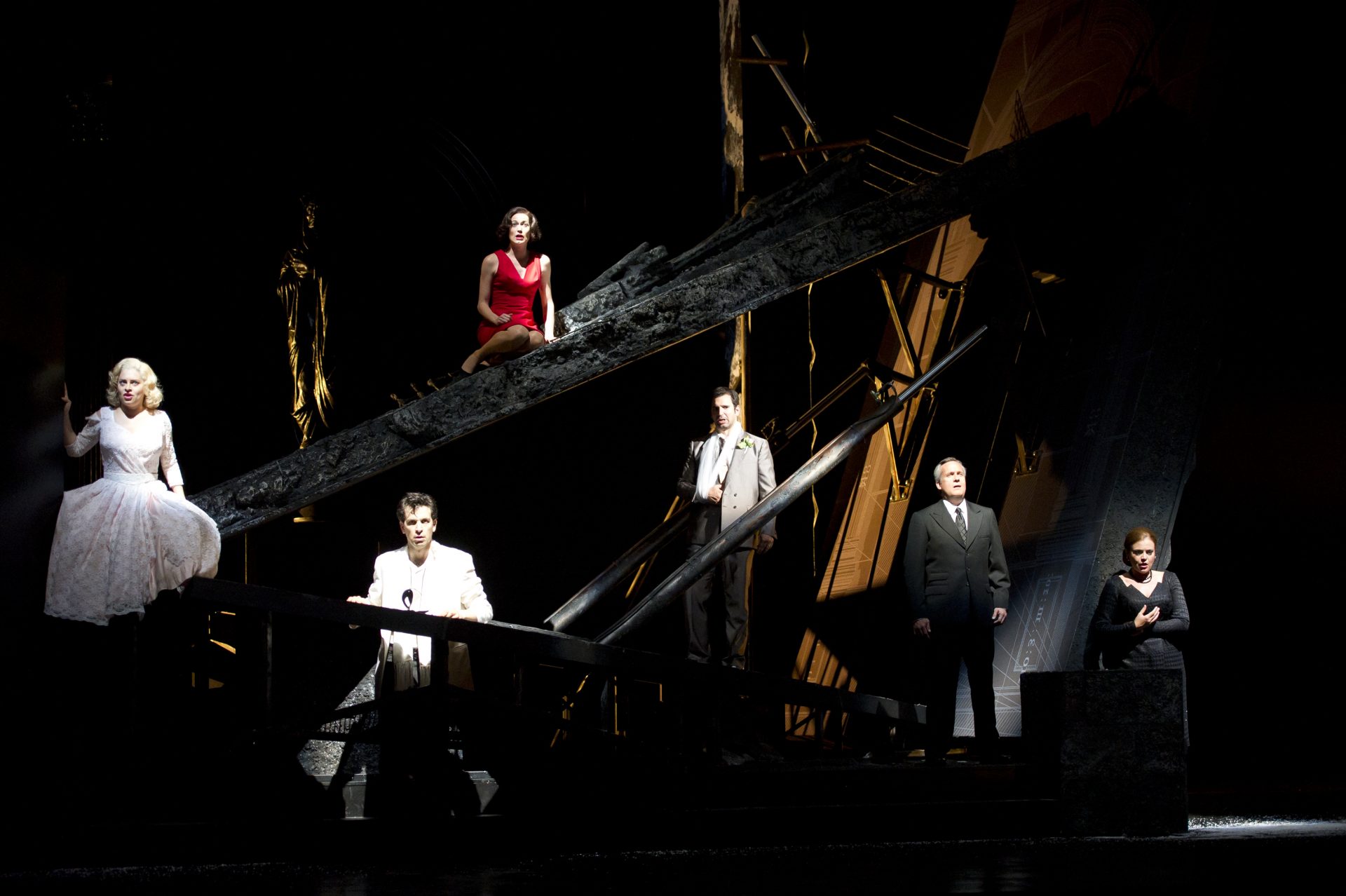Introducing... Don Giovanni
Everything you need to know about Mozart's Don Giovanni, which is available to watch online for free as part of Glyndebourne Open House from Sunday 31 May.
In this instalment of our Introducing series we explore Jonathan Kent’s sleek, contemporary staging.
Don Giovanni is part of Glyndebourne Open House – a weekly series of free operas, available on YouTube. The series will continue with Così fan tutte on Sunday 7 June.
A brief introduction:
Don Giovanni (1787), Mozart and librettist Lorenzo Da Ponte’s take on the familiar Don Juan legend, is a work ahead of its time. If the pair’s first collaboration, Le nozze di Figaro, had delighted and entertained its audiences, this opera was altogether darker, moving even further away from operatic conventions towards a newly free-form, fluid music-drama that moves breathlessly and with devastating momentum from arias to ensembles and finales without pause.
Don Giovanni’s meticulously balanced blend of comedy and tragedy brings a new emotional breadth, truthfulness and flexibility to a plot that traces the downfall of notorious libertine Don Giovanni after an attempted seduction ends in murder.
Shakespearean in its collisions of tone and mood, the drama moves from light-hearted comedy in the scenes between flirtatious Zerlina and her suspicious fiancé Masetto to brutal psychodrama in the battle of wills between the Don and his defiant conquests Donna Anna and Donna Elvira.
Mozart’s score mirrors the drama closely. This most psychological of all Mozart’s opera creates a different musical language for each character. So while Donna Anna and Don Ottavio express themselves in the sophisticated musical language of the aristocracy, the music for Masetto and Zerlina is much simpler, earthier, more sensual. The ultimate chameleon, Don Giovanni reinvents himself as he moves between worlds, giving each woman what she wants musically (if not always romantically).
Why not to miss it:

Jonathan Kent’s 2010 production – ‘a magnificent reinvention’ updates Mozart’s setting from 18th-century Spain to the 1950s – a world of Hitchcock and Fellini and the French New Wave. A dark, labyrinth-like set ‘looks a million dollars’ in Paul Brown’s ‘ingenious’ geometric designs, whose oversized, illusory structures evoke both Escher and de Chirico. Praised by the critics as ‘taut and lean’, this ambiguous, elegantly sinister staging ‘gives the audience plenty to chew on’.
It’s also a rare opportunity to hear the revised ‘Vienna’ version of Mozart’s score, with its additional arias for Don Ottavio and Donna Elvira, as well as a duet for Leporello and Zerlina.
A great moment to look out for:
Giovanni’s much put-upon servant Leporello generates much of the opera’s comedy in his bantering relationship with his master. But while he may play second-fiddle to Giovanni professionally, musically he’s quite capable of stealing the limelight, as his enormous Catalogue Aria ‘Madamina, il catalogo e questo’ makes clear.
Revealing the full extent of the Don’s promiscuity to an appalled Donna Elvira, Leporello warms to his task, relishing the patter-song rattle of his endless list of conquests, before warming into moments of expansive (and possibly admiring) legato, as he muses on his master’s extraordinary sexual appetite. Whose side is he on? That’s far from certain.
Cast and Creative team:
Glyndebourne’s former Music Director Vladimir Jurowski conducts a ‘beautifully crafted’ account of Jonathan Kent’s 2010 production, starring Festival regular Gerald Finley in the title role. Finley’s Don (‘both steely monster and molten charmer’) and Luca Pisaroni’s ‘delightfully goofy but treacherous’ Leporello are the ‘superb double act’ at the heart of this staging, driving it from tragedy to comedy and back again.
Thwarting their schemes are Anna Samuil’s Donna Anna and Kate Royal’s Donna Elvira, with the ‘vivacious and energetic’ Anna Virovlansky and Guido Loconsolo as Zerlina and Masetto – the young couple who find themselves helplessly drawn into the Don’s dark world. Tenor William Burden is the lovelorn Don Ottavio.







